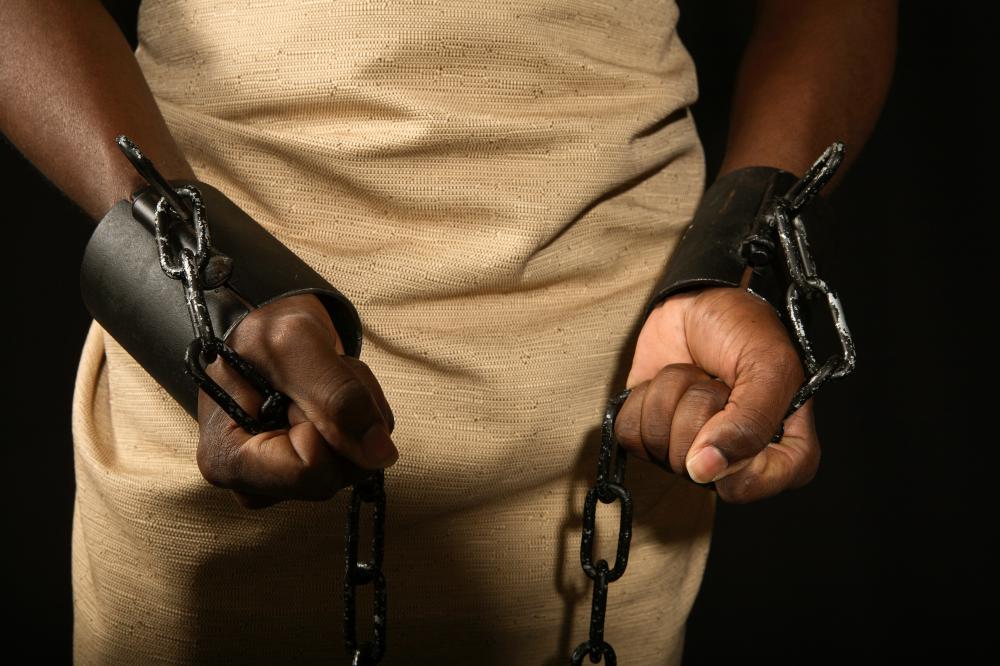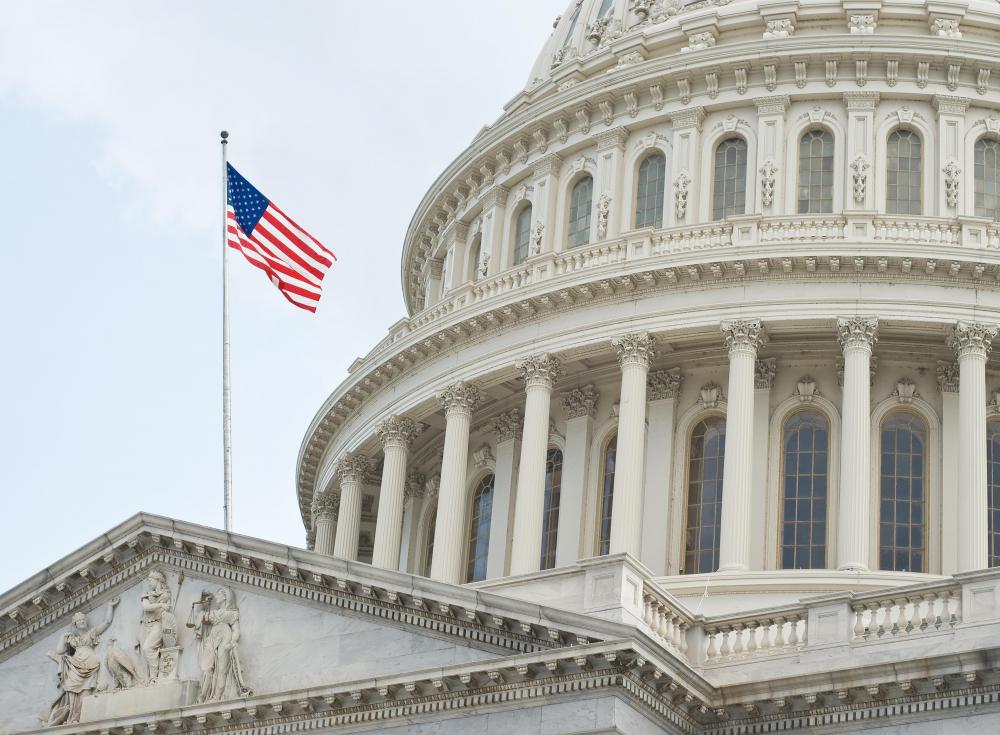At WiseGEEK, we're committed to delivering accurate, trustworthy information. Our expert-authored content is rigorously fact-checked and sourced from credible authorities. Discover how we uphold the highest standards in providing you with reliable knowledge.
What is the Fugitive Slave Law?
The Fugitive Slave Law was enacted in the United States in 1850 as a result of the passage of a related act by the U.S. Congress. As part of the Compromise of 1850 between the Northern antislavery and Southern pro-slavery contingents in the United States, the new law referred to an existing law from 1793 that gave slave owners the right to enter another state and recapture runaway slaves who had previously belonged to them. According to the law, it was the responsibility of the federal government to help owners recapture these slaves, who were denied any legal means to try and fight their return to slavery. After the Fugitive Slave Law led to many conflicts between Northern abolitionists and Southern slave owners in the 1850s, the outbreak of the U.S. Civil War at the start of the next decade essentially rendered the law meaningless.
Until 1850, the laws concerning fugitive slaves who had fled to the North were exceedingly vague. A 1793 law ensured that slave owners could cross state lines and take their slaves back, all while denying captured slaves basic rights like habeas corpus, jury trial, or the right to testify on their behalf. Northern states reacted by enacting personal liberty laws that guaranteed these rights to the former slaves. An 1842, U.S. Supreme Court ruling on a fugitive slave case declared that a slave owner's rights outweighed these personal liberty laws, but it also stipulated that a state need not cooperate in any way with the recapture of fugitive slaves, deeming it a federal responsibility.

One of the stipulations that Southern politicians insisted was necessary to be included in the Compromise of 1850 was a stronger Fugitive Slave Law. The one that Congress passed that year put U.S. marshals in charge of aiding slave owners with the recapture of runaway slaves. It also placed the burden of proof upon slaves to prove they weren't runaways, even as it denied them the basic legal rights to effectively do so. All that was necessary for a slave owner to prove that the man in question was his former slave was an affidavit from a Southern state court or the testimony of white witnesses.

Many Northern states continued to harbor fugitive slaves and went to great lengths to circumvent the Fugitive Slave Law. The famed Underground Railroad of antislavery sympathizers helped deliver many of these former slaves to friendly Northern states or even Canada. There were even armed conflicts between those protecting the slaves and the owners and federal personnel demanding their return. Bitterness over the law increased the animosity between the North and South leading up to the Civil War.

When the U.S. Civil War began in 1861, the states in the North who claimed to be beholden to a higher law simply ignored the Fugitive Slave Law. They legally justified this response by claiming that since they were at war with the South, the fugitive slaves were part of the contraband of that war and need not be returned. All slaves gained their freedom at the conclusion of the war following passage of the 13th Amendment to the U.S. Constitution.
AS FEATURED ON:
AS FEATURED ON:













Discussion Comments
@ PelesTears- The fugitive slave act must have had many victims who could not prove their innocence. I am African American, but my familial roots are in the West Indies, not the United States. Descendants of my father’s Side of the family originally came from West Africa, and were sold into slavery on a British plantation in Jamaica. This is how I ended up with my British last name. My opinion on reparations are that they should not be paid directly to those descended from slaves, rather funds should allocated to foundations and funds that help disaffected minority groups (not just racial groups either).
I take pride in the fact that my family has progressed from a people enslaved by the British to a group of successful black entrepreneurs who do business internationally. Merely a generation ago, some of my aunts and uncles were growing up in shantytowns in the West Indies. Now they own businesses in Chicago, Brooklyn, and Jamaica, and my cousins and I were able to attend top universities in the United States (although I grew up in the United States as a citizen). There is pride in knowing that we earned what we have, even though the odds were stacked against us.
@ submariner- American slavery is one of the darkest points in this country’s history. Additionally, the denial of the civil rights of certain groups of people has been one of the biggest stains in American history. Just as much as this country has been built on principles of life, liberty, and equality, it has been built on the backs of oppressed people.
It is sad that things like this have happened, but I still love this country. Most other nations do not allow the type of open discourse on touchy subjects of that country’s history as we do. The government eventually does try to make some sort of amends for the wrongs done to the different segments of the population in the past. How the government will make amends to all of those affected by slavery is a touchy subject, but I do believe something should be done. This will be an important step to fulfilling the "all men are created equal" rebuttal to the Declaration of Independence. Does anyone have any thoughts on how reparations should be made, or if they should be made at all?
I can only imagine the fear that any black person must have lived in during the 18th and 19th century. To have no rights must have made for a horrible life. It still blows me away that the majority of people thought it was acceptable to keep others as slaves, beating them, raping them, and forcing them to work endless hours as if they were less than an animal. I wouldn't even consider doing those things to any animal, let alone another person.
I am not that well versed on the history of slavery, but I do know of the fugitive slave law compromise of 1850, and that law is one of the biggest jokes in American history. It essentially allowed anyone with a "witness" to send federal agents after any back person they said was a slave. I wonder how many people were actually enslaved as free men and women because of this law.
Post your comments